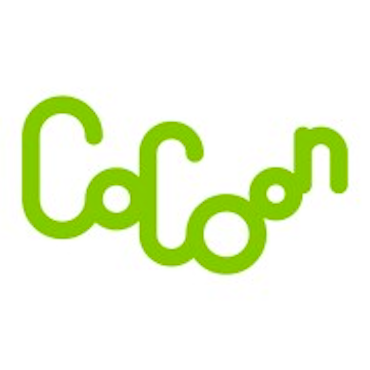CoCoon

CoCoon (2023-2025)
Partnerships for Innovation – Forward Looking Projects Erasmus+ Programme
€ 799.854,00
€ 182.787,00
Advanced Architecture Group
Description
The CoCoon project aims to use Bio-Design skills to foster innovation, creativity, and entrepreneurial skills. The main focus is developing green skills and bio-design competencies through “learning by doing” to enhance green prototyping skills in learners and to effectively use digital technologies.
Partners
COFAC Cooperativa De Formação E Animação Cultural CRL (PT), Aalto University (FI), Fjolbrautaskolinn I Breidholti – Fab Lab Reykjavik (IS), University of Porto – BIOPOLIS (PT), IAAC (ES)
The project
Co-creating greener futures; developing and transforming innovative bio-design modules for education to accelerate the green transition.
The CoCoon project aims to use Bio-Design skills to foster innovation, creativity, and entrepreneurial skills. The main focus is developing green skills and bio-design competencies through “learning by doing” to enhance green prototyping skills in learners and to effectively use digital technologies. This will be achieved through the design and implementation of Bio-design modules.
CoCoon, a three year project, is a strategic alliance that combines research on biology, education, bio-design and innovative infrastructures to contribute to supporting education and training systems to adapt to the green transition. Each partner works with different target groups to promote education and innovation. CoCoon aims to foster these ground-breaking methods and structure them into comprehensive skills of bio design. These bio design skills will be transferred 1)across countries and 2) between different target groups; VET, higher education, life wide learning and professionals. 3) between sectors; bridging education, science and industry. To sustain this transfer CoCoon will cooperate with decision makers and key stakeholders to impact policies for the green transition.
The core of the project lies with the curation of the Bio-Design modules with the aim of reaching an audience beyond the consortium. Therefore a special emphasis will be placed on transferability of the Bio-Design methods into schools, universities and open maker spaces. The consortium will pilot these courses, at university, upper secondary and VET schools. Additionally, open courses for makers will be held in Fab Labs. The manuals are developed by building on interdisciplinary skills including research from biology, chemistry, architecture, design, education and cognitive psychology fields. All the training manuals and educational materials will be open access and publicly available. The CoCoon manuals are intended to provide the seeds of change for a green transition and hopefully reach the makers of Europe and beyond.
The objectives of the project are as follows:
- BUILD green skills and competencies through the development of the Bio-Design Modules
- TRAIN teachers, students, designers, researchers, entrepreneurs and makers
- CHANGE behaviours by supporting an inclusive open community of bio designers
- BRIDGE education and industry with science and GreenLab methods
- DEVELOP a policies observatory and recommendations for decision making
Within the framework of the project, IAAC is leading the work package related to the implementation of the modules within the different institutions and fab labs. In addition, they will design the “Design with Living Systems” modules to be implemented, support and contribute to the initial research, and work on the dissemination of the project. The final symposium organised in Barcelona will be coordinated by IAAC.
CoCoon is a project developed by Cooperativa De Formação E Animação Cultural CRL – COFAC (Portugal), Institute for Advanced Architecture of Catalonia – IAAC (Spain), Aalto University – A!, (Finland), Fjolbrautaskolinn I Breidholti – Fab Lab Reykjavik (Iceland), University of Porto- BIOPOLIS (Portugal), and funded by the Partnerships for Innovation – Forward Looking Projects Erasmus+ Programme of the European Union.
This project has received funding from the European Union’s Erasmus+ programme under grant agreement No.101087204.

